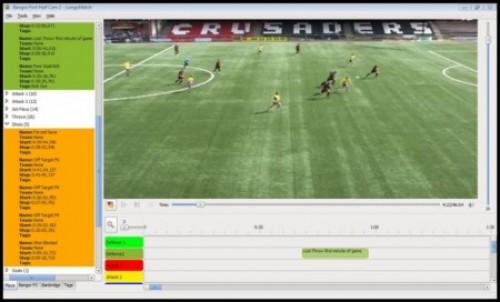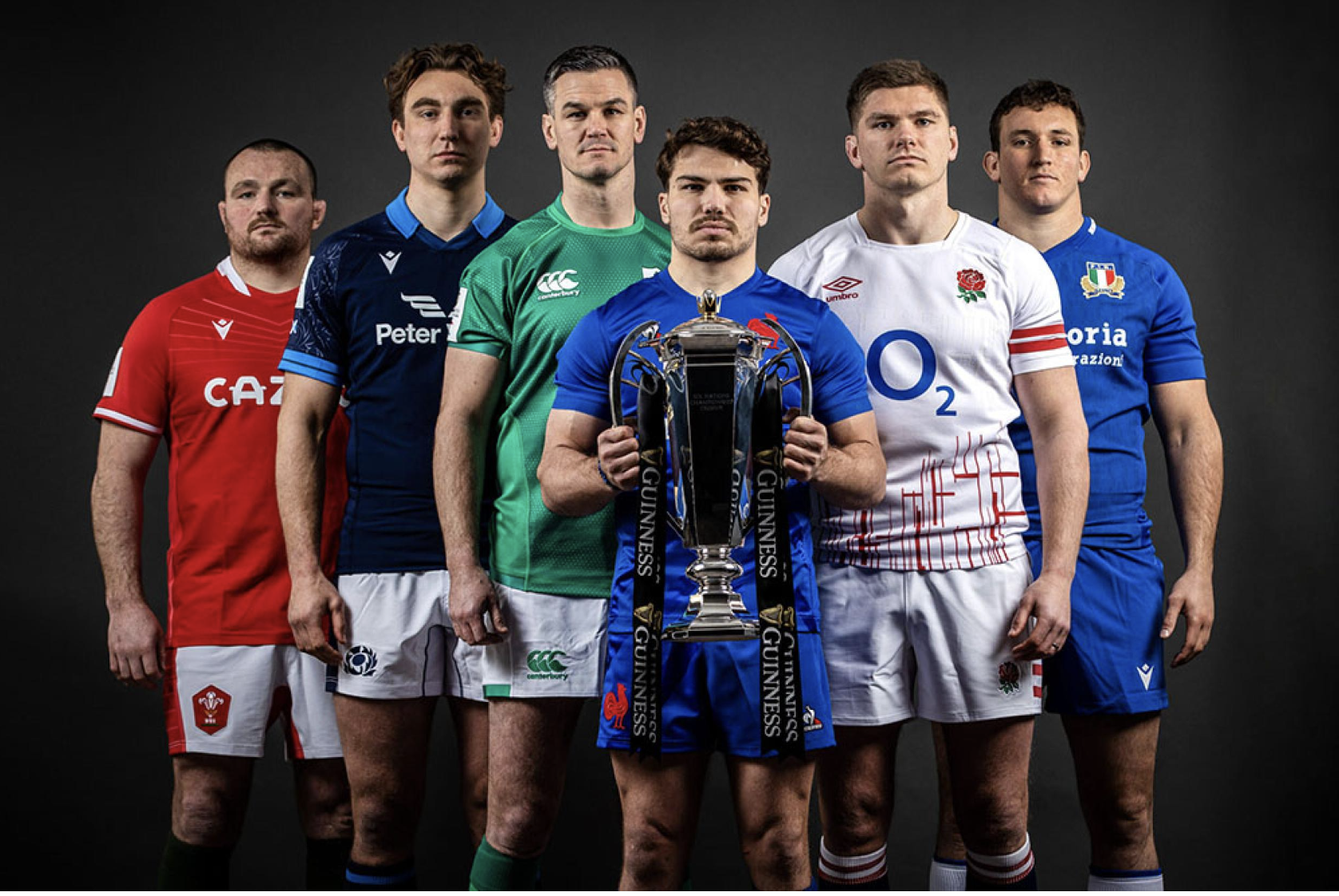
Photo from the Telegraph
Ever wondered what the guys with the laptops are doing during international and professional matches? The video analyst is still a reasonably new role to the coaching team, and while every professional team seems to have an entire team of analysts, the role seems to be very slow in filtering down to the grassroots level.
I suppose we have to ask ourselves, do I want to be the best I can be? That question is aimed at both the coaching team and players. Professional players seek out those inches that could make a tiny difference in improving their performance. The use of video analysis is at the forefront of that quest in the ‘modern’ game.
Imagine being able to evaluate every tackle, pass, kick, line break, throw, missed tackle etc. with each action accredited to an individual player. As technology continues to dominate every aspect of our lives, rugby coaches working at the grassroots level have to begin looking towards the next evolutionary step in coaching techniques. Over recent years the advancement of technology and its uses in sport have had a dramatic effect on sporting performance and how we coach rugby players at the elite levels.
Prior to the introduction of technology (specifically video analysis) into sports coaching the primary method of observing performance was the human eye. Most field based sports can have has many as 2-3 thousand events over an 80-90 minute period that can result in information overload. A study by Franks & Millar, 1991, showed international level coaches could only recall 30 per cent of key factors that determined successful performance. These limitations have had a major impact on the emergence of technology in sports coaching.
Several months ago, I had some correspondence with a leading analytical software developer in Norway. Our discussions evolved around several aspects of sport analysis, specifically the knowledge base in grassroots sport. We agreed that generally across sport the ‘in-house’ knowledge and competence of players and teams is normally connected to individual coaches in clubs. This has several issues for clubs: firstly when these coaches decide to move on then so does the information, and secondly, new coaches joining clubs have to start from a low knowledge base.
With technology becoming much more affordable, a small number of grassroots clubs have utilised video based analysis in their coaching process. However, one of the biggest mistakes that those new to analysis make is to start building a wide-ranging system with a high volume of Key Performance Indicators (KPIs). The result of this is too much information being fed back to the coaches and team, which has a negative effect on performance rather than a positive one. And, yes, I say this from experience after having to learn from making these very mistakes.

Analysis has become the cornerstone of knowledge creation and the capture of player performance data for coaches at the elite level. It is also utilised by professional clubs to find an edge over opponents. So why aren’t we making more effective and systematic use of this at the grassroots level?
Well, there are different opinions on this – some feel the cost of software, IT and resources are still out of touch of grassroots teams and clubs. In my opinion, however, the primary issue faced by grassroots coaches is the fact that sport analysis is poorly represented on an academic and vocational training front at the grassroots of rugby.
I believe that with the right training there is no reason why every club can’t have their own video analyst/coach, who provides the head coach with performance information that remains within the club. There is also no reason for the club not to fully understand the value of this information.
Over the past two years I have worked with several coaches, analysts and an awarding body to develop a learning programme that addresses this gap. Our focus was to develop a course that placed an emphasis on knowledge creation using technology and manual techniques, rather than focusing on any one analysis software application. We wanted our students to develop a rounded knowledge of the process, options and technologies available to produce performance data rather than a single application.
The resulting course is a Level 3 Award in Sports Performance Analysis that has been endorsed and certified by ICQ, an Ofqual recognised Awarding body.
It is the only course of its kind aimed specifically at the grassroots and intermediate levels of sport, and is suitable for anyone who currently works, or would like to work, in a sports coaching or sports science role, or those with a general interest in performance analysis.
In developing the course, I hope that I have remained true to my belief that the opportunities for using video technology at grassroots level far outweigh the benefits at the elite level. The course teaches students a range of effective video capturing techniques and how to develop a knowledge system relevant to the level and age grade they are working with. We explore and use a range of analysis applications that include ‘free to use’ and commercial software packages to ensure those completing the course can immediately embed video analysis into their coaching process.
The Level 3 Award in Sports Performance Analysis is available throughout the UK and Ireland. The course will be delivered across mainland UK by Navitas Sports, specialists in Education, Funding, Strategy and Analysis.
For further information on upcoming UK courses please email dave@NavitasSports.co.uk. For course enquiries in Ireland please email sportPA@leartraining.com.
Special Offer
Demand is expected to be high and FindRugbyNow have managed to secure 5 guaranteed places at the discounted rate of £250 (normal price £395). What’s more, the first five people to register through FindRugbyNow will be entered into a draw to receive their place for free.
By: Jason Lear (level 4 accredited Sport Analyst by ISPAS)
References
Franks, I.M. and Millar, G. (1991) Training Coaches to Observe and Remember, Journal of Sports Sciences, 9, 285 – 297








 When most people hear the word “Peloton” they think of an expensive black bike with shiny red buttons and that controversial commercial where the husband gifted his wife a Peloton for Christmas.
When most people hear the word “Peloton” they think of an expensive black bike with shiny red buttons and that controversial commercial where the husband gifted his wife a Peloton for Christmas. If the app interests you, Peloton is currently offering a 30 day FREE TRIAL, so why not give it a try? Check it out
If the app interests you, Peloton is currently offering a 30 day FREE TRIAL, so why not give it a try? Check it out 

 This article would not be complete, however, if we did not acknowledge some of the delivery issues that have been plaguing Peloton over the last year. Most of the delivery issues seem to affect U.S. deliveries, however, the UK deliveries have been affected as well.
This article would not be complete, however, if we did not acknowledge some of the delivery issues that have been plaguing Peloton over the last year. Most of the delivery issues seem to affect U.S. deliveries, however, the UK deliveries have been affected as well.







